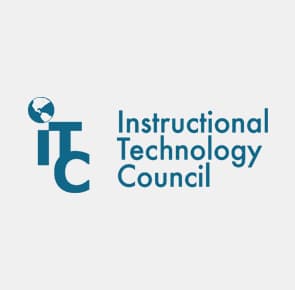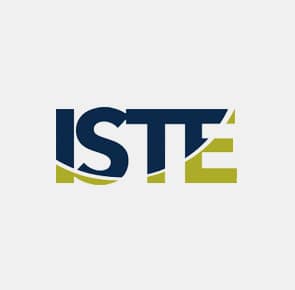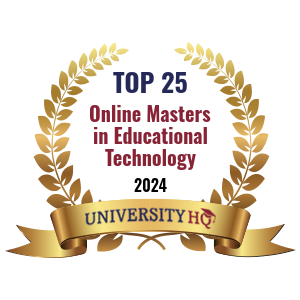Get Matched With Instructurial Technology Programs
What Does a Career in Instructional Technology Entail?
As an instructional technology specialist or educational technology educator, you may wear many hats and can find work in several distinct environments. For instance, you may work in a school district or you may work for a large corporation that needs a secure computer system that offers their employees training and instructional programs using various instructional strategies. You could also work in the military, developing and using techniques to integrate instructional technology effectively to support tactical or professional development for service members through online programs. Or you could mainly focus in creating online programs and learning environments for core courses in colleges and universities using your instructional technology degree.
In your chosen work environment and with a degree in instructional technology or instructional design and development, you may work as a media specialist, instructional technology specialist, online learning course designer, computer instructor, or faculty support and professional development for colleges and universities. Using technology integration to make the best use of educational technology in the classroom, you may design training materials and experiences, train corporate employees and managers, work as a consultant, evaluator, project manager, computer instructor, curriculum developer, or analyst, as well as managing policies related to learning technologies and instructional strategies used in academics and learning environments in K-12, special education, colleges and universities, online master's degree programs, or a variety of professional positions. These policies may address content, accessibility, or administration issues for instructional technology online and all technology-based learning, whether for in-classroom or online students.

Components of a Successful Career in Educational Technology
No matter where you are working, you’ll have to work every day with highly complex instructional technology or educational technology. You’ll perform data analysis, develop instructional design models, write for various publications, take part in strategic planning, manage projects, work on developing new learning technologies, learn new science theories, delve into research, or teach an instructional technology program or other degree programs if you choose to go into academics within a college of education or elsewhere.
You should expect to need to know how to problem-solve highly complex instructional design and instructional technology issues. You’ll have to have excellent communication skills, so you know how to train company or government employees or trainees. You’ll also have to have top-notch leadership skills as you guide your current students or professionals in learning new concepts using educational technologies.
Compare Popular Online Instructurial Technology Programs
Top 5 Best Online Bachelors in Educational Technology
The University of West Florida
Score: 83.29
- Undergraduate Tuition
- In-State: $6,360
- Out-of-State: $19,241
- Net Price: $8,609
- Acceptance Rate: 48%
- Retention Rate: 85%
- Graduation Rate: 53%
- Total Enrollment: 13,521
- Undergrad Students: 9,291
- Graduate Students: 4,230
- Grads Salary: $67,000
- Student-to-faculty: 22:1
Northern Illinois University
Score: 81.87
- Undergraduate Tuition
- In-State: $12,700
- Out-of-State: $12,700
- Net Price: $13,884
- Acceptance Rate: 71%
- Retention Rate: 65%
- Graduation Rate: 53%
- Total Enrollment: 15,649
- Undergrad Students: 11,429
- Graduate Students: 4,220
- Grads Salary: $78,000
- Student-to-faculty: 14:1
University of New Mexico
Score: 80.29
- Undergraduate Tuition
- In-State: $8,115
- Out-of-State: $26,450
- Net Price: $10,633
- Acceptance Rate: 96%
- Retention Rate: 72%
- Graduation Rate: 52%
- Total Enrollment: 21,953
- Undergrad Students: 16,375
- Graduate Students: 5,578
- Grads Salary: $74,000
- Student-to-faculty: 17:1
Asbury University
Score: 72.04
- Undergraduate Tuition
- In-State: $33,640
- Out-of-State: $33,640
- Net Price: $21,506
- Acceptance Rate: 79%
- Retention Rate: 83%
- Graduation Rate: 70%
- Total Enrollment: 1,650
- Undergrad Students: 1,404
- Graduate Students: 246
- Grads Salary: $59,000
- Student-to-faculty: 11:1
Western New Mexico University
Score: 69.81
- Undergraduate Tuition
- In-State: $7,868
- Out-of-State: $14,354
- Net Price: $10,676
- Acceptance Rate: 100%
- Retention Rate: 62%
- Graduation Rate: 31%
- Total Enrollment: 3,378
- Undergrad Students: 2,377
- Graduate Students: 1,001
- Grads Salary: $66,000
- Student-to-faculty: 11:1
Top 25 Best Online Masters in Educational Technology Programs
Johns Hopkins University
Score: 93.43
- Graduate Tuition
- In-State: $62,840
- Out-of-State: $62,840
- Net Price: $24,034
- Acceptance Rate: 7%
- Retention Rate: 97%
- Graduation Rate: 94%
- Total Enrollment: 31,275
- Undergrad Students: 6,044
- Graduate Students: 25,231
- Grads Salary: $94,000
- Student-to-faculty: 6:1
University of Virginia
Score: 89.52
- Graduate Tuition
- In-State: $19,118
- Out-of-State: $32,022
- Net Price: $19,469
- Acceptance Rate: 19%
- Retention Rate: 97%
- Graduation Rate: 95%
- Total Enrollment: 26,082
- Undergrad Students: 17,444
- Graduate Students: 8,638
- Grads Salary: $84,000
- Student-to-faculty: 15:1
Purdue University
Score: 86.02
- Graduate Tuition
- In-State: $9,718
- Out-of-State: $28,520
- Net Price: $12,576
- Acceptance Rate: 53%
- Retention Rate: 90%
- Graduation Rate: 83%
- Total Enrollment: 51,528
- Undergrad Students: 38,593
- Graduate Students: 12,935
- Grads Salary: $83,000
- Student-to-faculty: 14:1
North Carolina State University at Raleigh
Score: 85.81
- Graduate Tuition
- In-State: $9,459
- Out-of-State: $29,433
- Net Price: $14,852
- Acceptance Rate: 47%
- Retention Rate: 94%
- Graduation Rate: 85%
- Total Enrollment: 36,700
- Undergrad Students: 26,254
- Graduate Students: 10,446
- Grads Salary: $82,000
- Student-to-faculty: 16:1
Florida State University
Score: 82.52
- Graduate Tuition
- In-State: $9,684
- Out-of-State: $24,116
- Net Price: $14,003
- Acceptance Rate: 25%
- Retention Rate: 94%
- Graduation Rate: 85%
- Total Enrollment: 44,161
- Undergrad Students: 32,936
- Graduate Students: 11,225
- Grads Salary: $71,000
- Student-to-faculty: 17:1
University of Minnesota-Twin Cities
Score: 82.35
- Graduate Tuition
- In-State: $19,116
- Out-of-State: $29,580
- Net Price: $16,018
- Acceptance Rate: 75%
- Retention Rate: 90%
- Graduation Rate: 84%
- Total Enrollment: 54,955
- Undergrad Students: 39,248
- Graduate Students: 15,707
- Grads Salary: $80,000
- Student-to-faculty: 16:1
California State University-Long Beach
Score: 82.21
- Graduate Tuition
- In-State: $7,176
- Out-of-State: $16,680
- Net Price: $9,346
- Acceptance Rate: 40%
- Retention Rate: 85%
- Graduation Rate: 73%
- Total Enrollment: 38,973
- Undergrad Students: 32,931
- Graduate Students: 6,042
- Grads Salary: $79,000
- Student-to-faculty: 22:1
Ohio State University
Score: 82.21
- Graduate Tuition
- In-State: $12,515
- Out-of-State: $40,245
- Net Price: $19,582
- Acceptance Rate: 53%
- Retention Rate: 93%
- Graduation Rate: 88%
- Total Enrollment: 60,540
- Undergrad Students: 46,123
- Graduate Students: 14,417
- Grads Salary: $77,000
- Student-to-faculty: 17:1
University of Georgia
Score: 82.03
- Graduate Tuition
- In-State: $8,878
- Out-of-State: $25,186
- Net Price: $17,180
- Acceptance Rate: 43%
- Retention Rate: 94%
- Graduation Rate: 88%
- Total Enrollment: 40,607
- Undergrad Students: 30,714
- Graduate Students: 9,893
- Grads Salary: $73,000
- Student-to-faculty: 17:1
Texas A&M University-College Station
Score: 81.71
- Graduate Tuition
- In-State: $6,885
- Out-of-State: $19,882
- Net Price: $20,375
- Acceptance Rate: 63%
- Retention Rate: 95%
- Graduation Rate: 84%
- Total Enrollment: 74,014
- Undergrad Students: 57,512
- Graduate Students: 16,502
- Grads Salary: $80,000
- Student-to-faculty: 18:1
University of Delaware
Score: 81.25
- Graduate Tuition
- In-State: $18,504
- Out-of-State: $18,504
- Net Price: $18,044
- Acceptance Rate: 74%
- Retention Rate: 91%
- Graduation Rate: 80%
- Total Enrollment: 24,039
- Undergrad Students: 19,482
- Graduate Students: 4,557
- Grads Salary: $81,000
- Student-to-faculty: 15:1
University of Connecticut
Score: 81.21
- Graduate Tuition
- In-State: $18,834
- Out-of-State: $40,746
- Net Price: $23,985
- Acceptance Rate: 55%
- Retention Rate: 91%
- Graduation Rate: 83%
- Total Enrollment: 27,003
- Undergrad Students: 18,983
- Graduate Students: 8,020
- Grads Salary: $82,000
- Student-to-faculty: 16:1
California State University-Fullerton
Score: 80.55
- Graduate Tuition
- In-State: $7,176
- Out-of-State: $16,680
- Net Price: $7,925
- Acceptance Rate: 67%
- Retention Rate: 86%
- Graduation Rate: 69%
- Total Enrollment: 40,386
- Undergrad Students: 35,432
- Graduate Students: 4,954
- Grads Salary: $80,000
- Student-to-faculty: 24:1
University of South Florida
Score: 79.62
- Graduate Tuition
- In-State: $8,350
- Out-of-State: $19,048
- Net Price: $11,004
- Acceptance Rate: 44%
- Retention Rate: 90%
- Graduation Rate: 74%
- Total Enrollment: 49,600
- Undergrad Students: 38,047
- Graduate Students: 11,553
- Grads Salary: $73,000
- Student-to-faculty: 22:1
University of Florida-Online
Score: 79.31
- Graduate Tuition
- In-State: N/A
- Out-of-State: $0
- Net Price: $10,791
- Acceptance Rate: 65%
- Retention Rate: 92%
- Graduation Rate: 79%
- Total Enrollment: 5,356
- Undergrad Students: 5,356
- Graduate Students: N/A
- Grads Salary: $79,000
- Student-to-faculty: 54:1
Indiana University-Bloomington
Score: 79.3
- Graduate Tuition
- In-State: $10,133
- Out-of-State: $31,932
- Net Price: $16,234
- Acceptance Rate: 82%
- Retention Rate: 90%
- Graduation Rate: 81%
- Total Enrollment: 47,005
- Undergrad Students: 35,660
- Graduate Students: 11,345
- Grads Salary: $76,000
- Student-to-faculty: 17:1
University of Central Florida
Score: 78.26
- Graduate Tuition
- In-State: $6,916
- Out-of-State: $25,759
- Net Price: $13,108
- Acceptance Rate: 41%
- Retention Rate: 93%
- Graduation Rate: 76%
- Total Enrollment: 68,346
- Undergrad Students: 58,662
- Graduate Students: 9,684
- Grads Salary: $71,000
- Student-to-faculty: 29:1
James Madison University
Score: 78.24
- Graduate Tuition
- In-State: $11,856
- Out-of-State: $29,304
- Net Price: $18,274
- Acceptance Rate: 78%
- Retention Rate: 89%
- Graduation Rate: 81%
- Total Enrollment: 22,224
- Undergrad Students: 20,346
- Graduate Students: 1,878
- Grads Salary: $75,000
- Student-to-faculty: 17:1
Michigan State University
Score: 78.01
- Graduate Tuition
- In-State: $20,808
- Out-of-State: $40,884
- Net Price: $22,803
- Acceptance Rate: 88%
- Retention Rate: 89%
- Graduation Rate: 82%
- Total Enrollment: 50,023
- Undergrad Students: 39,201
- Graduate Students: 10,822
- Grads Salary: $79,000
- Student-to-faculty: 17:1
George Mason University
Score: 77.56
- Graduate Tuition
- In-State: $13,726
- Out-of-State: $35,677
- Net Price: $18,479
- Acceptance Rate: 90%
- Retention Rate: 85%
- Graduation Rate: 71%
- Total Enrollment: 39,049
- Undergrad Students: 27,014
- Graduate Students: 12,035
- Grads Salary: $82,000
- Student-to-faculty: 16:1
University of Michigan-Dearborn
Score: 77.02
- Graduate Tuition
- In-State: $15,556
- Out-of-State: $28,160
- Net Price: $12,444
- Acceptance Rate: 54%
- Retention Rate: 82%
- Graduation Rate: 56%
- Total Enrollment: 8,223
- Undergrad Students: 6,116
- Graduate Students: 2,107
- Grads Salary: $81,000
- Student-to-faculty: 16:1
George Washington University
Score: 76.79
- Graduate Tuition
- In-State: $35,100
- Out-of-State: $35,100
- Net Price: $42,723
- Acceptance Rate: 49%
- Retention Rate: 90%
- Graduation Rate: 85%
- Total Enrollment: 25,939
- Undergrad Students: 11,482
- Graduate Students: 14,457
- Grads Salary: $85,000
- Student-to-faculty: 12:1
Miami University-Oxford
Score: 76.6
- Graduate Tuition
- In-State: $13,932
- Out-of-State: $34,006
- Net Price: $23,031
- Acceptance Rate: 88%
- Retention Rate: 89%
- Graduation Rate: 81%
- Total Enrollment: 19,107
- Undergrad Students: 16,864
- Graduate Students: 2,243
- Grads Salary: $76,000
- Student-to-faculty: 15:1
North Carolina A&T State University
Score: 76.38
- Graduate Tuition
- In-State: $4,895
- Out-of-State: $17,695
- Net Price: $9,189
- Acceptance Rate: 56%
- Retention Rate: 74%
- Graduation Rate: 57%
- Total Enrollment: 13,487
- Undergrad Students: 11,833
- Graduate Students: 1,654
- Grads Salary: $79,000
- Student-to-faculty: 19:1
Webster University
Score: 76.11
- Graduate Tuition
- In-State: $13,140
- Out-of-State: $13,140
- Net Price: $23,069
- Acceptance Rate: 55%
- Retention Rate: 79%
- Graduation Rate: 59%
- Total Enrollment: 6,396
- Undergrad Students: 2,197
- Graduate Students: 4,199
- Grads Salary: $86,000
- Student-to-faculty: 12:1
Typical IT Teacher Educational Requirements
Online degree programs in this field are often offered only as master’s degree programs, most of which will be a Master of Science in instructional technology or educational technology. Since you will have gotten all of your general and core courses completed in a bachelor’s program, you’ll only have to take classes in educational technology in graduate school. Most universities will require you to satisfactorily complete 30 to 36 credit hours for graduation whether you attend in-person or online degree programs.
Typical Certifications
If you don’t want to complete a master’s degree in instructional technology program but need certification of earning the credit hours that prove your knowledge of instructional technology and instructional programs, you have the option to complete a shorter program. You could earn an educational technology or instructional technology certificate with 18 hours of required courses focused on instructional strategies, emerging technologies, how to integrate technology in a secondary or higher education classroom, etc. This can aid the professional development of those already working with emergining technologies, as instructional technology specialists, instructional technologists, instructional coordinators, those with a teaching certificate, etc. A graduate certificate can help you build an electronic portfolio, gain skills, and build your resume.
If you do go for a full master’s degree, earning credit hours in technical, project or program management, and pedagogical skills, then you’ll be equipped with all the professional skills you need to be an instructional technology teacher and use instructional technology effectively.
If you decide to work in the corporate world, you’ll develop instructional solutions, develop materials, and instruct managers, employees, and other working professionals using well-known instructional strategies as well as emerging technologies in your training programs and supporting their professional development and helping them gain skills. You may also work in a field where you build distance learning programs, aiming to integrate technology and new instructional theories into the program to reach learning objectives.
Academic Standards
Because you’ll be working in careers in information systems, museums, schools, higher education, consumer and public health, adult training, performance support, and software simulation and game design, your academic standards have to be high.
You may work in developing instructional practices and improving curriculum strategies. Or you may tackle the challenges and technological realities that school systems are struggling with as they try to find useful ways to make use of instructional technology. Knowing this, you will have to work hard in your studies and earn high grades. You should strive to keep your GPA around 3.0.
Find Online Instructurial Technology Schools
You may also develop and train technology for instructional design, media/learning center management, distance learning, training management, design development, and multimedia development.
Exam or Experience Requirements
 As you prepare to enter an in-person or online master’s in educational technology degree program, you will have to take your GRE and have your scores sent to the colleges and universities or college of education in which you are interested. If you will be an instructional technology instructor in a school system, you will have to take licensure exams as well.
As you prepare to enter an in-person or online master’s in educational technology degree program, you will have to take your GRE and have your scores sent to the colleges and universities or college of education in which you are interested. If you will be an instructional technology instructor in a school system, you will have to take licensure exams as well.
You should have prior knowledge on the uses of technology, from computers and servers to smartphones, tablets, electronic discussion forums, social media, blogs, and other web applications, though you need not already have a background in instructional technology or educational technology.
You’ll have one degree option specifically in instructional technology education available. This is the Master’s in Educational Technology Leadership, where you’ll learn about leading a team, as well as expanding your current knowledge of instructional technology education.
The highlights of an instructional technology education degree include an emphasis on leadership, applied coursework, an innovative curriculum, and a strong focus on central beliefs.
Some Example Courses:
Core Courses:
- Introduction to Quantitative Research
- Leadership and Education
- Education Policy
- Applying Educational Media and instructional Technology
- Computers in Ed. and Human Development
- Educational and Hardware Systems
- Managing Computer Applications
- Developing Multimedia Materials
- Instructional Design
- Mathematics
Elective courses:
- Issues in Distance Education
- Instructional Needs Analysis
- Instructional Technologies and Organizations
- Developing Effective Training with Educational Technology or Instructional Technology
- Computer Interface Design for Learning
- Advanced Instructional Design
- Developing Digital Professional Portfolios
Some Concentrations
Some universities incorporate concentration areas in Instructional Technology Education Master of Science in Educations programs:
- Instructional Technology (focus is on application aspects of computer and other technologies in business and education training).
- Leadership in Instructional Technology (This concentration has been created for those interested in pursuing a management or training position in either education or business).
- School Librarian (school librarians are given opportunities to develop technological expertise).
- Information Technology as applied to instructional technology (for K-12 teachers who teach IT courses or are responsible for providing IT support to their school district.
Fields of Study Salaries
Instructional technology specialists will conduct instructional technology activities for their employers or organizations. These experts take charge of training the organization’s staff members about different concepts in technology. Due to their education they are experts in this field, specializing in distinct technology matters for their organizations. They have developed exceptional communication skills, so they can synthesize and explain difficult technological concepts. Thus, their pay will be higher than the average technology employee.
IT Education & Teaching Fields of Study Median Salaries
-
Instructional Technology Specialists
Instructional technology specialists handle a wide range of tasks for their employers, training and teaching fellow employees about the technology their employer relies on and working to integrate technology. They will work with beginning learners, advanced learners, and learners for whom English is a second language.
As instructors, they include computer technologies in the curricula presented to learners in all grade levels. They develop and teach online training programs to faculty and students.
-
Instructional Technologists
In this role, the instructor assists school administrators and teachers as they assemble technology learning tools, making them instruction-ready for classrooms. Even though they won’t be educating students directly, their behind-the-scenes role in instructional technology is still very important, their role in helping provide the tools learners need is one of the most important in the secondary and higher education system. They might also be called instructional technology specialists or, at a higher level, intructional coordinators.
IT educators work at all levels in the educational arena, business, government, and the military. Instructional designers who work with the creation of computer technology and instructional technology programs earn more than a high school IT educator. At the master’s level, they hold highly specialized knowledge that allows them to attain a high position wherever they work. Training managers can earn an excellent salary at the beginning of their careers and instructional technologists aren’t far behind.
Salaries by Occupation
Instructional Technology Education Occupations
-
IT Education Occupations
Technical Trainer - This specialist develops and coordinates training materials and sessions. They provide the accompanying instruction and training/guiding developmental projects. They may train via webinars, conferences, or lectures so that everyone learns what they need to function in the workplace. They are also responsible for developing educational materials and coursework.
-
Master of Education (MEd), Educational Technology (EDT) - This specialist primarily educates students or co-workers on the use of instructional technology, how to operate the system and know when they need to reach out to an expert for troubleshooting help. If this person is an instructional designer or instructional coordinators, they will create the system, then train people how to use it.
Salary by Occupation
| Entry-Level | Mid-Career | Late-Career | |
|---|---|---|---|
| Instructional Designer | $52,200 | $66,100 | $74,800 |
| Technical Trainer | $56,100 | $67,600 | $77,600 |
Important Questions to Ask (FAQ)
How Long Does It Take to Earn an Instructional Technology Master’s Degree Online?
You will be expected to complete approximately 36 credit hours for your Master of Education in Educational Technology Leadership, whether you are taking your curses online or on-campus. You will take courses that focus on technology, leadership, ethics, community relations, school law, educational technology, research, human resource management, and up to two internships. Overall, your time in your master’s program should take about 18 months.
How Much Does an Instructional Technology Education Degree Cost?
Because you’re earning an online master’s degree, you’ll be paying graduate pricing. These days, even online students may pay full price for their graduate school degree. At one university in Texas, your total program cost will be $9,900. Since it is an online degree, your tuition costs will be lower than if you were to attend your classes on-campus.
Does the School Have the Major You’re Considering?
You don’t want to earn admission to a graduate program if the school you choose doesn’t have the instructional technology specialist major you need. Knowing this, you need to carefully look around at each university you’re considering, ensuring you select a university that does carry the major you need, such as instructional technology education, instructional technology specialist, educational technology, or an instructional design and technology program. These degree programs may be rare, but they do exist.
How Many Students Graduate “On Time,” In Two Years?
An online master’s degree from any graduate school in the country, as with most distance learning degrees, graduating on time is a function of dedication. Because most students are more likely to be working full-time while completing their on-campus or online master's degree programs, it can be difficult to graduate within the normal timeframe (usually 18 months to 2 years). However, there are many accelerated degree programs, working adult programs, or online degree programs in instructional technology or educational technology that allow you to complete the degree however you’d like.
What Kind of Accreditation Does the Online Program Hold? How is it Regarded in the Field?
 Instructional design or educational technology degree programs across the U.S. should be accredited by the Council for the Accreditation of Educator Preparation (CAEP). Along with the university’s accreditation, which is granted by the regional accreditation commission in which your state is located, you should have classes and a degree program that are fully accredited, ensuring high-quality faculty and class materials.
Instructional design or educational technology degree programs across the U.S. should be accredited by the Council for the Accreditation of Educator Preparation (CAEP). Along with the university’s accreditation, which is granted by the regional accreditation commission in which your state is located, you should have classes and a degree program that are fully accredited, ensuring high-quality faculty and class materials.
Software, Technology and Skills Needed
You should have a significant depth of computer skills that range from beginner to highly advanced. If you are concerned that your computer knowledge and skills won’t be sufficient, most university programs will teach you the technology skills you need to succeed in your future field. Every skillset that students bring to this field will be welcomed.
Search Programs Offering Instructurial Technology Majors
You should also have leadership skills—some of your classes will emphasize leadership development.
If you have design experience and have worked on the skillful implementation of educational technologies for technology classes, you will be able to understand much of your coursework.
Potential Scholarships
-
Maley/FTEE Scholarship
Amount: $1,000
Deadline: December 1
Awarded by the International Technology and Engineering Educators Association, this $1,000 scholarship supports graduate students who are studying information technology education. This scholarship supports teachers who are dedicated to increasing positive outcomes in technology and engineering education and are looking to integrate technology into the classroom. To be eligible, applicants must belong to FTEE and teach technology and engineering topics at any grade level.
-
Dr. Constance Wyzard Memorial Scholarship for Educational Technology
Amount: Varies
Deadline: May 1
This scholarship remembers Dr. Wyzard, who served adjudicated youth suffering disabilities who were placed in alternative school networking. Dr. Wyzard developed the Boise State education department’s only undergraduate course, serving about 500 pre-service teachers every year. To be eligible, students have to have a minimum GPA of 3.5; be a full-time student (12 credits, undergraduate, 9 credits, graduate). If students are part-time, they must be taking 6 credits undergraduate or 5 credits graduate. They should complete 18 credits or more in Boise State University’s Educational Technology program; must be a practicing K-12 classroom teacher; write a 500-word essay on the applicant’s classroom integration of technology.
-
Sean Ellenberger Memorial Scholarship
Amount: Varies
Deadline: May 1
Sean Ellenberger worked with at-risk youth in Florida after graduating with his Master’s in Educational Technology. He had plans of continuing to work with at-risk youth and working toward a doctoral degree. Sadly, Sean passed away shortly after graduating, as he was shot in a robbery. This scholarship was established by Boise State University, hoping to encourage other educators enrolled in the Master’s program who want to work with at-risk youth. Students must be currently enrolled as graduate students in the MS or MET program; hold a 3.5 minimum GPA; completed 12 credits or more in their graduate school Master’s program; can attest to career experience of or goals of working with at-risk youth.
-
Ken C. and Carolyn B. Gardner Scholarship
Amount: Varies
Deadline: May 1
Students must be enrolled and registered at Boise State University, taking 6 to 11 or 12 or more credits; undergraduate or graduate student; majoring in technology related fields; minimum GPA of 2.0 for undergraduate students; open to refugees to the U.S., women and minorities.
Professional Organizations
- WCET
- SALT
- ITC
- ISLS
- ISTE

WCET
Western Interstate Commission for Higher Education
WCET is proud to lead in the policy, practice, and advocacy of technology-enhanced learning in higher education. This is a national and member-driven, non-profit organization, bringing together higher education organizations, universities, colleges, and companies to bring improvements to the quality and reach of technology-enhanced learning programs. With 30 years of excellence behind it, the organization focuses on collaborative projects, networking, and information sharing. WCET was founded by the Western Interstate Commission for Higher Education (WICHE) in order to meet the growing need to integrate distance learning and educational technology.

SALT
Strategic Alternative Learning Techniques
This thought leadership forum focuses on unlocking the growth opportunities fields such as economics, finance, public policy, technology, entrepreneurship, and philanthropy. This organization draws such names as former presidents Bill Clinton, George W. Bush, former vice president Joe Biden, Mayor Michael Bloomberg, and others. Helping conferences related to increasing education technology in the nation’s classrooms, SALT is a major partner in this effort. When the conference attendees and speakers come together, they take part of four days of idea-sharing and networking.

ITC
Instructional Technology Council
Back in 1977, a committee compost of members of the American Association of Community and Junior Colleges created a “Task Force on the Uses of Mass Media for Learning.” Many years later, ITC is now the leader in advancing distance education. Its goal is to extend exceptional leadership and professional development in higher education. This is provided to its network of eLearning practitioners through collaboration, advocacy, research, and sharing high-quality, exemplary, innovative practices in education technologies.

ISLS
International Society of the Learning Sciences
ISLS is a professional organization that focuses on interdisciplinary empirical investigation of learning in real-world settings. ISLS also investigates how learning can be facilitated with and without technology.
Members include psychologists, anthropologists, computer experts, information sciences, education, neurosciences, design studies, instructional design, and other areas. Membership spans over six continents, providing unequaled opportunities for interaction across national boundaries.

ISTE
International Society for Technology in Education
ISTE focuses on boldness, with its emphasis on global educators who believe technology is one of the best ways to transform education and learning. ISTE works to speed up technological innovations and works hard to solve problems in learning and teaching, accelerate innovation of new techniques and technologies, and solve some of the biggest problems in education.
Members of ISTE work on the creation of educational and technological solutions. It also develops and nurtures connections that will improve opportunities for all learners. In doing so, it delivers evidence-based professional learning, practical guidance, thought-provoking events, and virtual networks.
Choosing an Accredited Institution
You’re putting a lot of money, time and effort into your master’s degree in instructional technology education. So, you want to recoup equal value back. One of the ways your chosen university can be of value to you is in its accreditation.
This is the university-wide, regional accreditation and your program’s accreditation. This status is much more than a pretty logo on the website or university’s letterhead. Accreditation means that the program, university, and faculty all are of high quality. That means your instruction will be of high quality. “Accreditation” means that the program (and university) go through a review process every few years to ensure that the materials, instruction, and faculty continue to be the best. The accreditation organization has recognized your program’s excellence—even the Department of Education recognizes its excellence and acknowledges so by including your university and program on its website.
You don’t want to run the risk of attending a university that is not accredited. If you do so, you won’t be able to access federal financial aid or scholarships. This will make paying for your time in school difficult. Once you graduate and begin looking for a job, you may not get high salary offers. Employers check the status of your program when they request your official transcripts.
Online vs. On-Campus vs. Hybrid
What do all these terms mean? “On-campus” is obvious—you go to the campus to take your classes on set times and days of the week. “Online” classes mean you attend every one of your classes from your home, a coffee shop or any other location with a WiFi connection. You’ll complete forum discussions, classes, written assignments, and quizzes solely online. The program will have a method that enables you to submit all your work electronically.
“Hybrid” classes are a blending of the best of both online and on-campus worlds. You will complete most of your work online. However, you’ll have one, two, or even three “in-residence” weekends where you will commute to the campus and take part in an entire weekend of classes, meetings, and discussions with your classmates and professors. With this format, you’ll actually be able to meet your classmates in the real world. The same goes with your professors. During these sessions, you’ll be able to discuss any questions or concerns you have face-to-face with your professor. “Blended instruction” is simply another term for “hybrid.”
Frequently Asked Questions
Does the College Have Post-Graduate Job Placement Help and Assistance?
If you’ll be returning to a previous employer after graduation, you won’t have to concern yourself with finding a job after you leave the stage where you just walked across to accept your diploma.
If you don’t have a promise from an employer that you have a job waiting for you, you’ll have to update and send out resumes, write cover letters that express your interest and “fit” for an announced educator’s position, and attend and actively participate in an interview with the hiring manager if not an entire committee of supervisors or administrators.
While you’ve been through this process multiple times in the past, you may not be aware of new best practices and beliefs. This is where a Career Placement and Services office will help you. Counselors in this office are specially educated and trained to offer you guidance and advice as you embark on your job search.
From help in re-crafting your resume to developing new, updated cover letters and practicing in mock interviews, you will receive a large amount of invaluable help. Taking this time and trouble to learn what you need to know means that potential employers will appreciate your efforts—which may lead to a job offer.
Why You Need to Consider the Overall National Rankings of the Institution and its Effects on Your Career or Salary
Where you go to college does matter. First, you need to be accepted by an accredited university and program. Beyond that, your chosen university should have developed a good name and reputation that, when you begin job interviews, will lead to employers considering you seriously as a possible employee.
The question may come down to price or prestige. You may not be able to afford the most expensive, Ivy League universities and colleges. Prestige can cost a very pretty penny, even with financial aid. This means price becomes even more important in the equation. Aside from just price, consider the most recent rankings of universities you may be considering.
If you choose a university because of its instructional technology education program rather than prestige or ranking, your salary offer may end up being lower than it otherwise could be. The more elite programs may equate to a higher annual salary. And, over time, this effect continues. The median annual salary of those who chose elite universities will continue to be higher than for those who chose state universities. Students who graduated from high school in 1980, moved to elite universities, then graduated, had wages 20% higher than those from state universities.
One factor in the above: the study containing these numbers didn’t separate out students who graduated from college from those who dropped out. That factor may have negatively affected the average wage picture for graduates of state universities since more students successfully graduate from more exclusive universities.
Even more significant, women who attended a university that was a cut above a state university received wages that were 17.4% higher than students who attended state universities. For men, the difference was a gap of 8.1%. So, as you are considering which college to choose, take ranking or prestige into account if all other considerations are about equal.
What does instructional technology do for education?
Instructional technology provides better ways to provide training and education to those who might have a hard time attending traditional classes, those who are learning/training in a work environment, and more. However, it does more than provide a new way to provide training and education. It also provides entirely new ways to garner feedback about those trainings and educational programs so that we can ensure that training is achieving what we want it to achieve and we can make sure that students are being taught in a way that is most likely to create long-term learning. Teachers can gather or provide near-instant feedback, they can use digital tools to figure out where students are in a lesson and see who might be falling behind or need special attention, and they can provide extra learning opportunities for those who complete their lessons ahead of the pack.
What will you learn in an instructional technology program?
In these programs, you will learn not only to use existing instructional technology programs and techniques, but also how to design your own. This includes every step of the design process, from analysis of student learning methods to the implementation of brand-new learning platforms and programs. You’ll learn how to design new elements of these programs in a way that engages students, perhaps even making learning fun as so many programs promise but fail to do. You’ll evaluate how these new programs are used in the field or in test scenarios. And you’ll use that evaluation to tweak and hone your program to create the best possible platform for learning that you can.
Is this a good field to enter?
The answer to that is strongly based on your desires for a career and your overall interests. Maybe you like the idea of helping people learn, but you’re not strong on a face-to-face basis, or maybe you love technology, but you want to use it in a way where it is implemented to help people. Both of these personalities are likely to do well in instructional technology. You must be interested in and have a knack for technology, but you must also be willing to build your programs to serve a specific group and be certain that they will gain the most good out of the solution you create. It’s definitely true that much of our educational system and even our work training scenarios are moving more and more into the realm of technology, so it’s likely that there will be plenty of jobs available in this field for years.
































